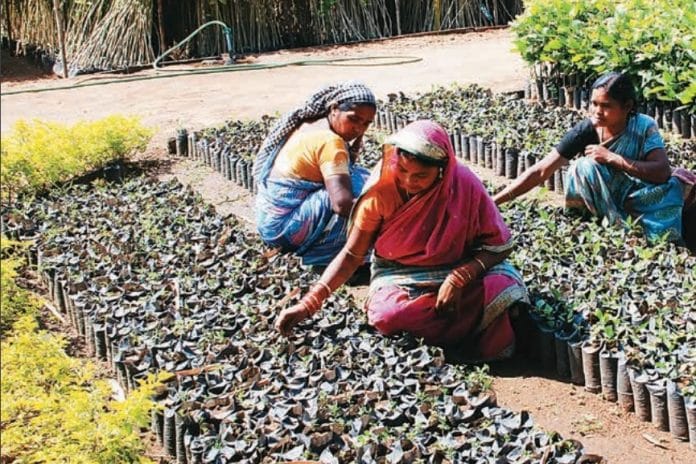The Common Review Mission on MGNREGA also found that people were unaware that the scheme is supposed to deliver work on demand.
A sample audit exercise conducted by the rural development ministry has found several glitches in the implementation of MGNREGA, the marquee job guarantee scheme.
The audit, called the Common Review Mission (CRM), has highlighted concerns about the current wage rate, the scheme being supply-driven instead of demand-driven, instances of delay in wage payments, and states unable to complete work on schedule.
The CRM, the second of its kind, was conducted in February 2017 across eight states – Assam, Bihar, Chhattisgarh, Gujarat, Kerala, Madhya Pradesh, and Tamil Nadu. The first CRM was conducted in Andhra Pradesh, Jharkhand, Karnataka, Madhya Pradesh, Maharashtra, Orissa, Rajasthan, and Tripura in May 2016.
States covered under the CRM are chosen to “represent a variety of situations in the country”.
How it is monitored
The Mahatma Gandhi National Rural Employment Guarantee Act, passed in February 2006, promises a 100 days of employment to each rural household every year based on their demand. The Act stipulates that wages be paid within 15 days of the completion of work.
The CRM, along with national level monitoring and internal audits, are some periodic exercises to monitor its implementation at the grass-root level.
Major concerns
The biggest concern found in the CRM was that the actual average wage rate in the states was lower than the mandated wage rate. In Telangana, for instance, the actual average wage rate was found to be Rs 131, as against the stipulated Rs 180, a pattern that was found across states.
The scheme was envisioned to be demand-driven, but the CRM has found that it has become supply-driven. This effectively means that work is provided as per ability to plan work/funds and not as per demand requirements of beneficiaries.
The findings also say that people are unaware that they can demand work and the gram panchayat has to create work accordingly within the stipulated period.
The review also found that states were unable to complete work on schedule, and that there were “instances of delays in payments” in several places. Delays in wage payments have been a serious concern under MGNREGA with only 44 per cent, 37 per cent, 27 per cent and 50 per cent of the wages being paid on time in fiscal years 2016-17, 2015-16, 2014-15 and 2013-14 respectively.
In addition, the review found there was irregular measurement of work, and that wage payment was not based on actual work, but was being done to match the average daily wage rate.
An ineffective grievance redressal mechanism, poor quality of assets created, and lack of technical capacity with gram panchayats were some of the other weaknesses highlighted.
In an important step towards fixing accountability with the Centre, the CRM clearly stated that the delay in payments to the states, especially the material component, “due to shortage of funds with the Centre has to be resolved by the Centre”.
Making local monitoring systems and ombudsman more effective, while ensuring the scheme remains demand-driven were the other key recommendations of the mission. It also said the ministry should “ensure similarity in the schedule of rates across similar states with similar working conditions”.






